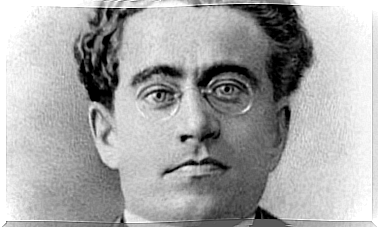5 Truths Emotionally Mature People Accept

Emotionally mature people know that life is not always easy or fair. Therefore, they hold no one responsible for his joy, or his suffering. In the same way, they do not expect others to have the key to their well-being. They are only responsible for their own choices. They are the architect of every step and every decision they make.
The concept of emotional maturity represents one of the pillars of Albert Ellis’ theories. For those who do not know about the dangers of cognitive-behavioral therapy, he is one of the most outstanding figures in psychology.
He wrote over 80 books and 1,800 articles, trained more than 200 therapists, and created an institute bearing his name. This institute teaches people to identify, challenge and replace their negative perceptions with healthier perceptions. These healthier perceptions promote well-being and emotional growth so that people can conquer their goals.
It is important to have basic tools that can be used to facilitate our growth and maturity as human beings. These keys or principles, which we will discuss later, contain the essence of Albert Ellis’ work: to make suffering more manageable.
1. Emotionally mature people understand that the world is not what they want it to be.
Many of us would like to change the past. We would like to end a chapter, read it again, and decide to delete certain paragraphs so that the story makes more sense.
But whether we believe it or not, life is sometimes meaningless. Unexplained things happen, and we feel obligated to accept them.
Emotionally mature people have learned that they cannot change other people. This is because you can not wait for others to behave or say what you want. All of this will undoubtedly lead to unnecessary suffering.
To be happy, you have to take responsibility for yourself
Bertrand Malle, a cognitive psychologist at Brown University, conducted a study in 2004 to analyze the relationship between joy and the way we understand human responsibility.
Believing that what is happening to us is the responsibility of others generates discomfort. It’s like living like an ostrich, you just hide your head in the sand while blaming the world for your mistakes.
Of course, we do not have control over every aspect of our reality. Yet can we choose how we react to it. That’s the key.

3. You can change whenever you want
Emotionally mature people allow themselves to change. Changing means growing and adjusting yourself after learning something.
Growing often means putting things and people behind us to reduce the burdens that limit us and our personal value and well-being. It suggests being brave and making clear decisions. You need to understand that your potential lies in creating periodic changes.
4. You need to carry an emotional compass in your pocket
We need an emotional compass in every life journey. It should always lead us to a path where fear does not weigh us down too much, where we are not anxious, and where our nerves do not slow us down.
Emotionally mature people have learned to deal with emotional states that lead to unwanted consequences. They learn from every experience.
Your emotional compass should remain well calibrated. You can achieve this with experience and to be more aware of inner states, irrational thoughts and moods that bring out the worst in you.

5. Emotionally mature people know that you do not have to be in love to be happy
Emotionally mature people are not obsessed with finding love. They do not avoid it, but they do not need it either. If there is one thing they understand, it is that growing emotionally is what matters. The important thing is to continue learning with someone who enriches your life, someone who does not invoke the right to veto emotional values but rather expands them.
Thus, the love that knows balance and lets everyone follow their goals will be the only one that fits in the heart of emotionally mature people. They prefer solitude over unhealthy conditions. Well-being and personal satisfaction are more important to them.
Our conclusion is that you should know that no one comes into this world as an emotionally mature person. It is something we learn over time.









